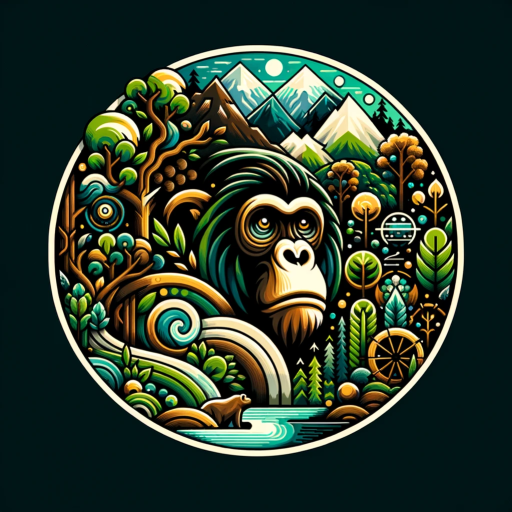“`html
AI’s Role in Music: Why It Won’t Kill the Industry
As artificial intelligence (AI) continues to carve its niche across multiple industries, the music world is abuzz with questions about its potential effects. Will AI be a creative partner, or does it threaten the very essence of artistry? Many prominent musicians, such as Sevdaliza, FKA Twigs, and Holly Herndon, argue that AI may not only coexist with human creativity but can also enhance it. This article dives into the insights and perspectives of these innovative artists, demonstrating why AI could become a significant ally in the music industry rather than a harbinger of doom.
The Intersection of AI and Music
The advent of AI technology in music composition, production, and performance has sparked exciting discussions among artists, producers, and fans. From generating melodies to producing complex soundscapes, AI’s capabilities are expanding. But how does this blend of technology and artistry unfold?
Creating New Opportunities
One of the primary advantages of incorporating AI into music is its ability to assist artists in their creative processes. Holly Herndon, a pioneer in this area, utilizes AI as a collaborator, enriching her work instead of replacing her human touch. This collaborative approach allows artists to:
- Experiment with new sounds and patterns that they may not have considered.
- Streamline repetitive tasks in music composition and production.
- Explore unconventional musical structures—opening doors to innovation.
AI as a Tool, Not a Replacement
While some fear that AI-generated music could replace human creativity, musicians argue that AI should be viewed as a tool rather than a competitor. Sevdaliza eloquently expresses that the emotional and human-centric elements of music remain irreplaceable. Skills honed over years can’t be replicated by algorithms; feelings, experiences, and personal stories contribute depth to music.
Balancing Art and Technology
Finding the balance between art and technology is crucial for the future of music. Artists need to retain control over their creative vision while utilizing AI to enhance their music. The collaboration may redefine the process of music-making, but the heart of the artistry—human emotion—will always be a fundamental pillar.
AI and the Evolution of Music Genres
The introduction of AI isn’t just about creating new tools; it’s also reshaping genres and spawning entirely new ones. FKA Twigs has been at the forefront of this evolution, integrating storytelling with innovative sound design, some of which utilizes AI. The emergence of AI technologies may help:
- Foster genre-blurring outcomes that combine various elements.
- Generate entirely new styles based on data-driven trends.
- Simplify collaborations across diverse genres and cultures.
A New Era of Accessibility
With AI’s ability to democratize music production, aspiring artists can now create high-quality music without the need for expensive equipment or studios. This accessibility leads to an explosion of creativity, where anyone with a passion for music can share their unique perspectives. By lowering barriers to entry, AI encourages:
- Diversity in sound and perspective.
- Broader representation of voices across different backgrounds.
- An increase in independent artists entering the music scene.
Ethical Considerations in AI Music
While the benefits of AI in music are considerable, the challenges cannot be overlooked. Questions about copyright, attribution, and ownership arise as AI starts to generate music and lyrics independently. It’s crucial for the industry to set guidelines that ensure artists receive recognition and fair compensation for their work.
Engagement from Artists and Organizations
Musicians and industry organizations must engage in discussions about ethics in AI. Collaborations, like those seen with Holly Herndon and her AI project, are essential to shaping a future where technology supports artists rather than undermining them. Developing norms will ensure:
- Respect for creative contributions from both humans and AI.
- Proactive measures against intellectual property violations.
- Transparency in the use of AI in music production.
The Future of Music and AI: A Symbiotic Relationship
The evolving relationship between AI and music seems poised to flourish rather than falter. As musicians like Sevdaliza, FKA Twigs, and Holly Herndon embrace AI as a collaborative partner, the creative possibilities expand, creating an exciting future for the music industry.
Emphasis on Collaboration
Rather than posing as a disruptor, AI may serve as a catalyst for innovation. Collaborations between artists and technology experts may establish a new genre of work that weaves AI-generated elements with human intuition:
- The blending of AI algorithms with emotional songwriting.
- The incorporation of real-time data to alter performances dynamically.
- The creation of immersive experiences that combine visual arts, music, and AI.
Conclusion
In conclusion, AI’s impact on the music industry presents an opportunity rather than a threat. With the insights of influential artists leading the way, the synergy between human creativity and technological advancement could reshape the landscape of music for the better. AI will not kill the music industry—it will transform and enrich it, paving the way for a more inclusive and innovative future.
As the journey unfolds, one thing becomes clear: the heartbeat of music will always resonate through the human experience, and AI will be a tool augmenting that expression, rather than replacing it.
“`

